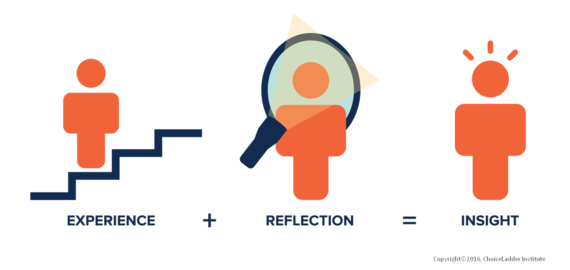Anthony Weiner is making headlines again this week after allegations that he engaged in sexually suggestive communications outside of his marriage.
What is so eye-catching about this headline, however, isn't the sensational nature of the story...it's the fact that this is not the first time Weiner has made a spectacle of himself in the public eye for doing exactly the same thing.
Only five years ago, caught in an eerily similar scandal, Weiner resigned from his job in Congress and claimed "full responsibility" for the incident. This isn't the second time Weiner has been caught repeating his mistakes, however. This is the third -- a year after he resigned in disgrace from Congress, another scandal broke during Weiner's 2013 New York City's mayoral run, exposing a months-long stint of inappropriate communication with another woman outside of his marriage.
What is it that hijacks successful men like Anthony Weiner from learning from their mistakes, even after being given a second --or in this case, third-- chance in the public eye? What is it that drives them, and other prominent individuals, to engage in perpetual self-sabotaging behavior?
Refer, briefly, to the classic fable of The Scorpion and The Frog. The old tale, which can be traced back to the early 50's, tells of a scorpion that asks a frog to carry it across a river. The frog expresses some initial hesitation, cautious about being stung, but the scorpion persists by reassuring the frog and reasons that if it were to sting the frog, his way across the river would be compromised and he would drown.
Despite the scorpion's promise, the animals make it no more than halfway across the river before the scorpion stings the frog, sealing both of their fates. When the frog reminds the scorpion of their agreement and asks the scorpion why he chose to sting him, the scorpion replies that he simply couldn't help it--it was in his nature.
In Weiner's situation, he seems to be the scorpion and the rest of the general public--including voters, his family and anyone who's seen his name grace the front of a newspaper--plays the role of the frog. Despite his asking for the benefit of the doubt and another chance at being 'carried across the river,' so to speak, Weiner just can't seem to break the cycle of self-destructive choice-making. At best, you could call his exploits "situations to be learned from," but he doesn't seem to be learning a thing.
The problem here, with Weiner and other successful individuals who seem to be blind to the consequences of their actions, isn't a lack of intelligence. Despite what the scorpion of the tale insists, it's not really "nature" driving this habitually poor judgment. It is a lack of insight and the fact that we have been conditioned to believe that it's our nature, and not our power of choice, that leads to poor judgment.
In simpler terms, refer to the famous Will Rogers quote, "Good judgment comes from experience, and a lot of that comes from bad judgment."
Smart people are respected because they are able to learn from their experiences. On a higher level, those who are wise are able to not only learn from their own experiences but also from the experiences of others. Then there are people who never seem to learn from their experiences at all, and must be labeled neither smart nor wise, but dumb. It doesn't matter how high someone's IQ is if they can't seem to learn from their past mistakes.
Insight, a result of reflection on one's experiences, is the key to escaping the rut of poor choices.
It is easy to look at someone successful and assume that charisma, drive or intelligence alone got them to that place. These attributes may contribute to an individual's success, but are not enough to keep them on top. The only way to accomplish this is by continually improving on one's insight. Otherwise, instead of forging ahead to the path of success, they are doomed to walk a road that loops them right back to where they started. In fact, it is more relevant to look at a person's JQ™ or Judgment Quotient, instead of their IQ to determine how long their success will last.
While Anthony Weiner isn't learning from his mistakes, his pattern of self-sabotage offers us all the chance to be wise and learn from him. No matter what level of success one has achieved or how smart they appear on paper, they are doomed to repeat their mistakes and ensure their own downfall, if they choose to ignore their conditioning and the invisible forces that hijack their better judgment.
Take some time to reflect upon what is driving your behavior and what mistakes you've been conditioned to repeat. Otherwise, like Anthony Weiner and the drowned scorpion, you may begin to claim that self-sabotage is just "in your nature" as well.


